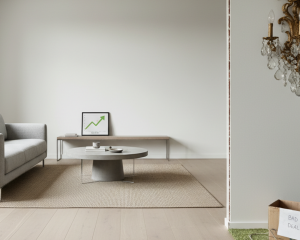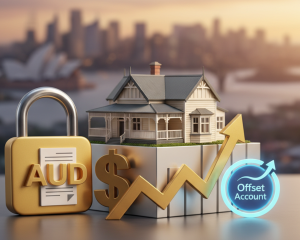Pay Off Mortgage or Invest? Pros & Cons for Your Future
Key Takeaways
- Deciding whether to pay off your mortgage or invest is a core financial choice that can define your future security or wealth.
- Paying off your mortgage can provide certainty, a guaranteed “return” at your loan rate, and peace of mind—but may limit liquidity and opportunities for higher growth.
- Investing offers a pathway to accelerated wealth, diversified income, and flexible access to cash, but brings market volatility and risk of loss.
- There’s no universal answer; the best solution depends on your unique goals, risk comfort, and financial position.
- Often, splitting surplus funds between mortgage prepayment and investing delivers both stability and long-term growth.
Why This Decision Matters Now
Imagine you are standing at the crossroads of your financial journey. One road leads to a mortgage-free life, securing your home and giving you long-term peace of mind. The other road takes your surplus income and puts it to work in investments that could generate greater future wealth and opportunities. Which direction delivers the security and freedom you seek?
“Pay off mortgage vs invest” is a decision that thousands of Australians face every year. It is not just a financial query—it is about aligning your money with your life’s goals, especially in 2025 as interest rates and economic conditions evolve. Whether you’re starting out, mid-career, or planning retirement, this choice could shape your finances for decades.
The Security of Paying Off Your Mortgage
Why Paying Off Your Mortgage Appeals to Many
For many Australians, clearing the mortgage is the gold standard. By paying off your home loan, you:
- Eliminate the risk of losing your property if life circumstances shift.
- Lower your monthly expenses, giving you more lifestyle or savings flexibility.
- Lock in a “return” equivalent to your loan’s interest rate (especially compelling if rates are relatively high).
- Experience the wellbeing of true homeownership—debt-free and free from bank obligations.
That morning cup of tea feels different when you know the house is truly yours. It is a feeling that blends both emotional and practical security.
The Downsides: Lost Liquidity and Opportunity Cost
However, tying up your cash in bricks and mortar means:
- Your extra money is hard to access if needed for emergencies or new opportunities, given property is an illiquid asset.
- If your mortgage interest rate is low, you could be forgoing the higher returns often available from smart investments.
When I first became self-employed, the idea of living mortgage-free was incredibly tempting—I pictured the relief of ditching that monthly payment forever. During my first year as a consultant, I’d built up enough of a cash cushion that I could have wiped out a big chunk of my home loan. But every time I hovered over that “transfer funds” button, a little voice reminded me why I’d saved that emergency buffer in the first place: to weather the unpredictable months I hadn’t planned for. Sure enough, a tough quarter hit not long after; two major clients delayed projects, and suddenly, those savings covered not just my bills, but my peace of mind. Looking back, what mattered wasn’t just the return I got versus the interest rate—it was having options. That experience taught me that financial security isn’t just about numbers, but about knowing you have the flexibility to handle what life throws at you. For some, slashing the mortgage brings the deepest comfort. For others (like me), keeping cash accessible means more room to breathe—and to build—when opportunity or adversity knocks.
Ask yourself:
- Can I quickly access these funds if an emergency arises?
- Am I sacrificing higher future gains by focusing only on debt reduction?
The Upside and Risks of Investing Instead
Why Many Choose to Invest
For those with longer horizons and bigger goals, investing can be the key to unlocking greater financial freedom. Consider:
- Returns from diverse assets (shares, managed funds, investment property) can often outpace mortgage rates over time.
- Investment offers flexibility; many assets can be liquidated if you need quick cash.
- Diversifying income sources reduces your reliance on your job or a single asset class.
- Compounding returns could accelerate your path to financial independence.
The Flipside: Greater Exposure to Volatility
Of course, investing is not guaranteed. Markets fluctuate. Sometimes returns won’t match past years or may underperform your mortgage rate. Market downturns require patience, psychological resilience, and a strong emergency buffer.
Consider before prioritising investment over extra repayments:
- How comfortable am I with short-term losses?
- Is my emergency fund strong enough to avoid withdrawing investments when markets are down?
- Am I financially and emotionally ready for market turbulence?
The Balanced Approach: Mortgage Payoff AND Investing
You do not need to view this as an either/or dilemma. Many successful investors adopt a hybrid plan:
- Continue making scheduled mortgage repayments.
- Divide surplus funds between extra repayments and smart investments (such as shares or ETFs).
A hybrid strategy allows you to reduce debt steadily and start building wealth through investment returns. For example:
- Receive a $10,000 bonus.
- Place $5,000 towards your mortgage to lower future interest and principal.
- Invest $5,000 into a diversified portfolio targeting long-term growth.
This approach can mean better sleep, knowing you are reducing debt and building assets for the future.
Should I Pay Off My Mortgage or Invest? How to Decide for Yourself
No single answer suits every household. At PropertyChat, we have seen two decades of property and investment decisions play out, and we know it always comes down to individual circumstances.
Key Factors to Consider
- Goal Alignment: Are you chasing security, early retirement, or future wealth creation? What matters most to you in ten years?
- Risk Tolerance: How would you react if your investments underperformed or decreased in value for a time?
- Current Financial Position: Is your cash flow strong? Do you have adequate emergency savings? Are there smarter tax moves available?
- Interest Rate Environment: Are you on a higher-than-average rate, making extra repayments more attractive?
- Lifestyle Flexibility: Do you want the option to travel, take a break, or start a business without financial stress? Or does the idea of future lifestyle improvements via investing appeal more?
Real-Life Example from the PropertyChat Community
Sophie and Mark, both in their 40s, owed $350,000 on a Sydney home at 6%. They had $30,000 in savings. They could either apply all of it to their mortgage (guaranteed payoff at 6%) or seek higher rewards through long-term share investments (historically 8% returns, but higher risk).
Learning from other PropertyChat members, Sophie and Mark chose balance:
- Put $15,000 extra into their mortgage, cutting years off their loan.
- Invested $15,000 in a managed fund, giving them future wealth-building potential.
Their outcome: less stress and more options, without having to choose only one path.
Practical Steps for Your Decision in 2025
1. Run the Numbers: Compare your mortgage’s interest rate with potential average investment returns. Use online tools or consult a professional for guidance tailored to your situation.
2. Build a Buffer: Ensure you have easy-access emergency savings before funnelling money into investments or paying down your loan.
3. Define Your Priorities: Clarify what matters most in the next five, ten, and twenty years.
4. Address Your Emotions: Recognise that peace of mind has financial value too.
5. Leverage the Community: Connect with others at PropertyChat.AI who have faced this very crossroads, and gain insights from hard-earned experience.
Want more tailored strategies and real-world advice? Browse our expert guides or become part of the conversation at PropertyChat.AI—Australia’s home for property wisdom.
Further Reading on PropertyChat
- How to Refinance Your Home Loan
- Building a Property Portfolio: Steps for Success
- Renovation Cost Guide for Investors
- Understanding Overcapitalising on Renovation
Your Path to Financial Confidence
There is no universal answer to the “pay off mortgage or invest” debate. The right answer is the one that fits your financial goals, your attitude to risk, and your vision for the future. Whether you choose to clear your debt, build your investment portfolio, or take a balanced approach, what matters is aligning your actions with your values.
Backed by decades of investor experience at PropertyChat.AI, you can take your next step with confidence. Connect with the PropertyChat community, and equip yourself with the insights you need for a secure and prosperous future.
Ready to make your next move? Get practical insights and connect with fellow investors at PropertyChat.AI now. Your future self will thank you.ort at Your Property Success and PropertyChat.ai.
Transcript
Shocking Mortgage Truth: Invest or Pay Off?
0:00So, you’ve got some extra cash on hand.
0:02What do you do with it? Do you throw it
0:04at your mortgage to pay it off faster,
0:06or do you dive into the stock market and
0:08invest for the future? Man, that’s a
0:10question that can really keep you up at
0:11night and for a really good reason. This
0:14one choice, it could literally shape
0:16your entire financial destiny. So, yeah,
0:19you’re standing at a massive financial
0:20crossroads. Path one, it leads to that
0:23incredible feeling of a debt-free home.
0:26Path two, well, that one could lead to
0:28some serious wealth down the road. So,
0:31which one do you take? You know, this
0:33isn’t just about crunching numbers on a
0:34spreadsheet. It’s about what truly helps
0:37you sleep better at night. All right,
0:39let’s dive into path number one. This is
0:42the dream that so many of us have,
0:43right? The pure unfiltered joy of being
0:46completely 100% mortgage free. I mean,
0:49the appeal here is huge. First off,
0:52there’s that massive weight off your
0:54shoulders knowing your home is safe. No
0:57matter what curve balls life throws your
0:59way, suddenly your monthly budget has
1:01all this breathing room. But here’s the
1:03real kicker. Paying down your mortgage,
1:05it’s like getting a guaranteed tax-free
1:07return on your money. You’re basically
1:09earning back whatever your interest rate
1:11is, and it’s totally risk-free. And come
1:13on, that morning coffee just tastes a
1:15little bit better in a house that is all
1:17yours, right? Okay, so it sounds like a
1:19total no-brainer, doesn’t it? But hold
1:22on, there’s a hidden cost we need to
1:24talk about, and it’s called opportunity
1:26cost. Every single extra dollar you sink
1:29into your mortgage is a dollar that
1:31could be out there working for you in
1:33other ways. This quote just nails it.
1:35It’s from a consultant who was this
1:37close to paying off a huge chunk of
1:38their mortgage, but something told them
1:40to hold back. And thank goodness they
1:42did. When their business took an
1:43unexpected downturn, that cash they held
1:46on to wasn’t just savings. It was a
1:48lifeline. It’s such a powerful reminder
1:50that yeah, home equity is great, but you
1:52can’t exactly use it to buy groceries.
1:55So, if tying up all your cash in your
1:57house can be a little risky, what’s the
1:59alternative? Well, that brings us to
2:01path number two, investing for growth.
2:04This is the mount for those of you who
2:05are willing to take on a little more
2:07risk for the chance at a much bigger
2:09reward. The argument for investing is
2:12really compelling. I mean, historically,
2:14the stock market has returned an average
2:16of around 10% a year. So, if your
2:18mortgage rate is say 4%, you could be
2:21leaving a whole lot of money on the
2:22table by not investing. This is where
2:24the magic of compounding really gets to
2:26work. Plus, your investments are way
2:28easier to access in an emergency than
2:30your home equity. It’s all about making
2:32your money work just as hard as you do.
2:35And this is the point where you have to
2:37be super honest with yourself. Are you
2:39the kind of person who gets excited by
2:40the potential of the market even with
2:42all its wild swings? or does the simple
2:45quiet thought of a guaranteed return and
2:46a debt-free life just bring you an
2:48incredible sense of calm? There is
2:50absolutely no right or wrong answer
2:52here, only what’s right for you. And
2:54let’s be real for a second. Investing
2:56can feel like a roller coaster. When the
2:59market inevitably takes a dip, can you
3:01really resist that gut instinct to just
3:03sell everything? Can you stomach seeing
3:05your portfolio in the red, trusting that
3:07it’s probably going to recover in the
3:08long run? That gut check is honestly
3:10just as important as any financial
3:13spreadsheet. Okay, so far we’ve looked
3:15at two very different paths. But what if
3:18I told you there’s a third option? What
3:20if you could kind of have your cake and
3:22eat it too? What if there’s a middle
3:23ground that could give you the best of
3:25both worlds? Well, that’s where the
3:26balanced approach comes in. The balanced
3:29approach is pretty much exactly what it
3:31sounds like. You take that extra cash
3:33you have and you split it. You put some
3:35towards your mortgage and some towards
3:37your investments. You get that amazing
3:39satisfaction of watching your mortgage
3:40balance go down while also giving your
3:43money a chance to grow in the market.
3:44It’s a true win-win. Let’s look at
3:47Sophie and Mark. They had an extra 30
3:49grand in a mortgage with a 6% interest
3:51rate. Instead of agonizing over the
3:54decision, they just did both. They put
3:56half of it towards their mortgage, which
3:57is going to save them a ton in interest
3:59and shave years off their loan. Then
4:01they invested the other half in a fund,
4:03giving them a huge head start on their
4:04retirement savings. And you know what
4:06the best part is? They’re sleeping great
4:08at night, totally confident that they’re
4:10making smart choices for their future.
4:12So, how do you actually put all this
4:14into practice? How do you figure out
4:16which path or which mix of paths is the
4:18right one for you? Well, it all starts
4:20with taking a good, honest look in the
4:22mirror. Look, there’s no magic formula
4:24here. It’s all about what feels right
4:26for you and your situation. So, maybe
4:28grab a piece of paper and really ask
4:30yourself these questions. What are my
4:32biggest financial goals? How much risk
4:33am I truly comfortable with? What does
4:35my financial safety net look like right
4:37now? The answers will help you build a
4:38plan that’s perfectly tailor made for
4:39your life. All right, ready to take
4:41action? Here’s your checklist. First,
4:44run the numbers. Compare your mortgage
4:46rate to what you could realistically
4:47expect to earn in the market. Second,
4:50and this is a big one, make sure you
4:52have a solid emergency fund saved up.
4:53That is absolutely non-negotiable.
4:56Third, get clear on your priorities and
4:58be honest about your feelings. And
5:00finally, don’t try to figure this out
5:02all by yourself. Talk to people who’ve
5:04been exactly where you are right now.
5:06So, here we are, right back at that
5:08crossroads. Remember, there’s no right
5:10or wrong turn to take. The only real
5:13mistake is to just stand still and not
5:15choose a path at all. Your future self
5:18is going to thank you for making a
5:19conscious choice today. So, what’s it
5:22going to be? And hey, if you’re looking
5:24for a community of people who are
5:25wrestling with these exact same
5:27questions, I really recommend you check
5:28out property chat.ai. It is a fantastic
5:32place to get real world advice and
5:33support from fellow investors. Thanks so
5:36much for tuning in.
Frequently Asked Questions
What’s the biggest mistake first-time property investors make?
Overcapitalisation is consistently the most costly mistake. New investors often spend more on renovations than they add in property value, turning potential profits into guaranteed losses. Always get professional assessments before major improvements.
How much should I budget beyond the purchase price?
Plan for an additional 20-30% beyond the purchase price for stamp duty, legal fees, inspections, and initial setup costs. Then budget 10-15% of annual rental income for ongoing expenses and maintenance.
Should I invest in my local area or look elsewhere?
Location should be chosen based on investment fundamentals, not convenience. While local knowledge can be valuable, don’t let familiarity override sound investment criteria. The best opportunities may be in areas you haven’t considered.
How do I know if I’m paying too much for an investment property?
Get independent valuations, research recent comparable sales, and understand local market conditions. If you’re buying at or above the top of recent sales ranges without clear value-add opportunities, you’re likely paying too much.



